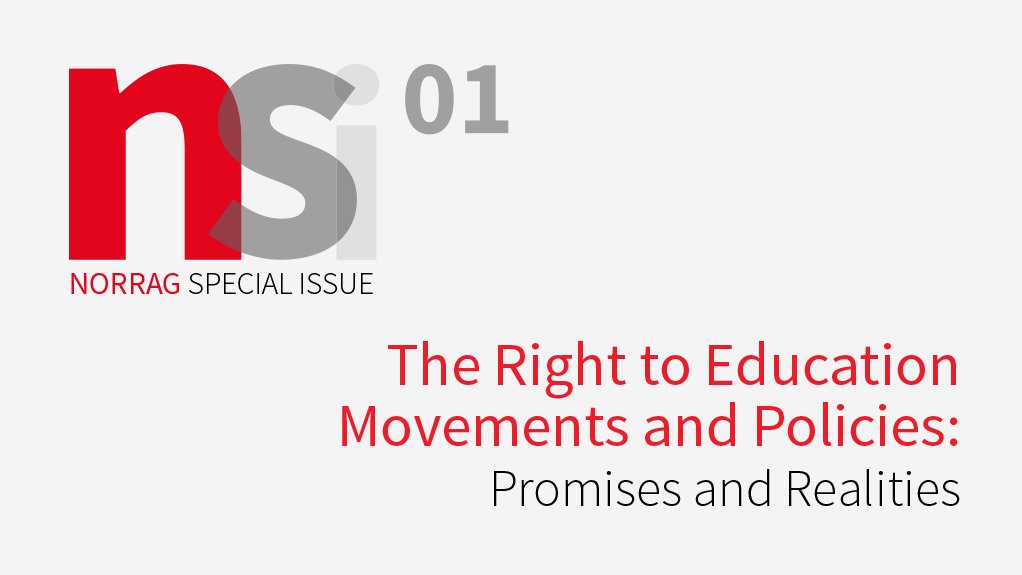- The Right to Education Movements and Policies: Promises and Realities1.42 MB
The year 2018 marks the 70th anniversary of the Universal Declaration of Human Rights (UDHR), which was adopted by the global community in 1948. Amongst other fundamental human rights, we have yet to realise the right to education as outlined in Article 26 of the UDHR:
1. Everyone has the right to education. Education shall be free, at least in the elementary and fundamental stages. Elementary education shall be compulsory. Technical and professional education shall be made generally available and higher education shall be equally accessible to all on the basis of merit.
2. Education shall be directed to the full development of the human personality and to the strengthening of respect for human rights and fundamental freedoms. It shall promote understanding, tolerance and friendship among all nations, racial or religious groups, and shall further the activities of the United Nations for the maintenance of peace.
3. Parents have a prior right to choose the kind of education that shall be given to their children.
Commitment to ensuring the right to education for all has since been affirmed in several international frameworks and, most recently, within Sustainable Development Goal 4: Ensure inclusive and quality education for all and promote lifelong learning.
However, according to UNESCO, 264 million children and youth are still out of school around the world, and this is only accounting for the primary (61 million) and secondary school (203 million) age population. In particular, the poorest and most marginalised, including ethnic and religious minorities, persons with disabilities, girls, and populations experiencing conflict, are often systematically unable to access and complete a full cycle of quality education.
The first volume of NORRAG Special Issue (NSI) is dedicated to examining international frameworks and national policy as well as the challenges of fulfilling the right to education in practice.
Report by Network for International Policies and Cooperation in Education and Training (NORRAG)
EMAIL THIS ARTICLE SAVE THIS ARTICLE ARTICLE ENQUIRY
To subscribe email subscriptions@creamermedia.co.za or click here
To advertise email advertising@creamermedia.co.za or click here











